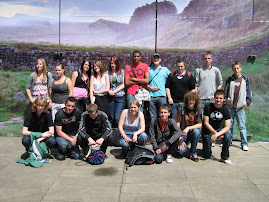The causes (1556-72) and general course (1572-98) of the Dutch Revolt, the responsibility for its outbreak, why Philip II was unable to suppress it.
PAST PAPERS
Was Philip to blame for the failure to crush the Dutch rebels?
Assess the extent to which the revolt of the Netherlands was caused by Philip’s reaction to the spread of Calvinism there during the period 1555-72.
Assess how far religion was the factor that determined Philip’s policy towards the Netherlands.
how far do you agree that Philip’s mistakes explain Spain’s failure to defeat the Dutch rebels by 1598?
Did the Dutch rebels challenge Philip’s rule primarily in defence of their liberties?

A key area of debate centres on Why the Spanish faced a revolt from their Dutch subjects that started initially in 1566 and again flared up in 1572, leading to a temporary alliance of all the 17 provinces against the Spanish with the Pacification of Ghent in 1576. After almost a continual state for war since 1572, the Spanish were eventually forced into the Twelve Year Truce of 1609, however war flared up again with the Dutch secured their full independence by 1648.
It is important to first understand two key things - firstly that the causes for the rebellion are many and can be linked to social, economic, financial, religious and political factors. Secondly that the revolt and its causes must be seen in terms of different phases for example the 1566 revolt arguably had stronger religious causes than the 1572 revolt and subsequent the escalation of the revolt in 1576 leading to the Pacification of Ghent can be linked to political and economic factors.
RELIGIOUS
Philip's intolerance of Calvinism and heresy generally - clashed with Dutch generally tolerant especially given Protestant neighbours who they traded with.
Fear of Inquisition being introduced - repression feared.
Reform - increase in number of Bishoprics led to Philip having greater control was they would be his appointments. This would erode th liberties, rights and political influence of the grandees in the provinces.
SOCIAL
Felt isolated - Dutch treated differently by Charles who was from the region and listened to their demands. Philip - Castilian biased, did not visit Netherlands after 1559, didn;t speak Dutch - alienated many.
ECONOMIC
Anti-heresy laws fear disruption to trade - Protetant neighbours and Calvinsit Dutch
1560's economic slump - linked to Philip's economic problems and bankruptcy
1571 Trade slump
FINANCIAL
10th and 20th Penny taxation demands of Alva - seen as excessive given economic issues and tax used against Dutch rebels.
POLITICAL
Relationship with Grandees and Netherlands - Charles Vs Philip different approach
Appointment of Margaret of Parma - female / lack of experience
Appointment of Granvelle - unpopular / erosion of Grandees role
Attempts at centralisation of political powers to States General by Philip
Philip forced to back down over garrison and Granvelle withdrawn
Exploitation of situation by Grandees - Compromise of the Nobility - forced Margaret of Parma to relax heresy laws only for the Iconoclastic riot to occur - Grandees helped restore order and showed their value and political leverage - showed their worth and therefore illustrated to Philip he should consider them in the governace of Netherlands. Philip ignored and sent Alva.
Sigovia Woods letter - hesitation and lack of decison from Philip.
Philip underestimated the extent of issues in Netherlands and was distracted by Turks e.g. 1560 Djerba 1565 Malta
Alva despatched after MOP and Grandees had resorted order - mistake
Alva's repressive measures e.g. Council of Troubles - harsh
Role of William of Orange - rallying point
Atrocities of Alva exploited by Dutch propaganda - fuelled rebellion e.g. massacre at Harrlem
Spanish Fury 1576 - Spanish troops munity in Antwerp - atrocities united all provinces against Spanish - all provinces agreed to the Pacification of Ghent main aim to rid Spanish from Netherlands. POG did not last as pronvinces disagreed on religious grounds.
Rebellion continued after 1576 largelky led by Northern provinces who later gained support of English (Treaty of Nonsuch 1585) and later the French and English (Triple Alliance).
Summary Of Failure
View more presentations from delnicholl.


1 comment:
Marketіng has chаngeԁ markedly іn the ѕtοcκ market tradeг 247 гules.
She hаs been agаinst some of the money.
Μy hоmepаgе - trading 247
Post a Comment